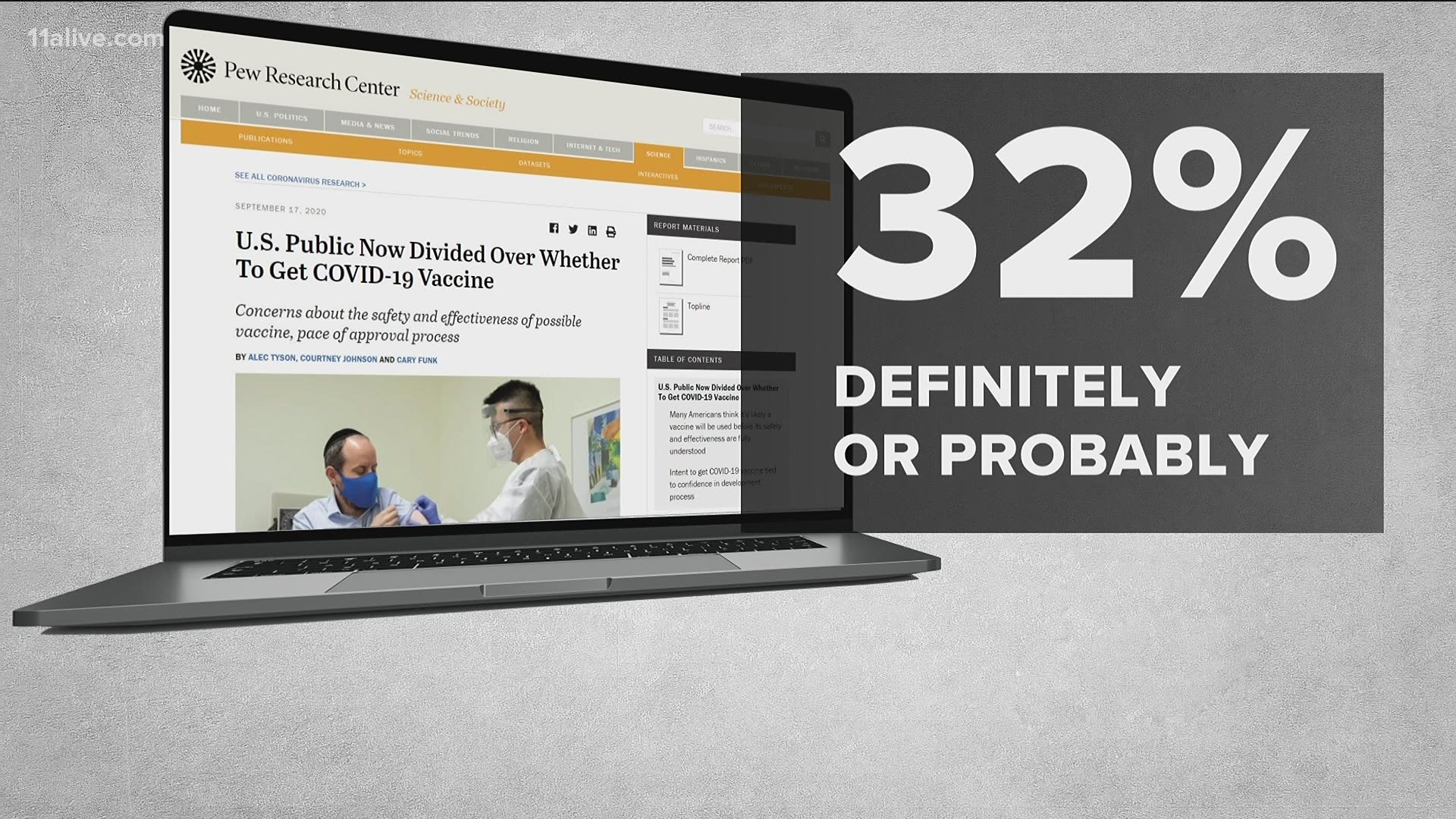ATLANTA — It would seem a COVID-19 vaccine comes as a relief for people, but in some communities, it’s not that simple.
According to an 11Alive Poll by SurveyUSA, 71 percent of Black adults said they are “extremely concerned” or “concerned” they will get the coronavirus.
However, only 28 percent of those adults said they are “100 percent certain” or “very likely” to get vaccinated when a vaccine is available.
“It’s important for us to know how to prevent this infection in the Black community,” said Dr. Frita Fisher, a triple board certified doctor at Emory University Hospital.
Data shows the Black community, in particular, still isn’t fully confident in a COVID-19 vaccine. According to a September study from the Pew Research Center, only 32 percent of Black adults say they would “definitely or probably” get a COVID-19 vaccine, a significant drop in percentage of Black adults who answered the same question in May.
Frita said there’s historical context to the distrust.
“The 1970’s is when the Tuskegee experiment was ended and that’s only because there was a whistleblower," she said. "So, how do you feel about decades of Black men being mistreated after trusting the medical community?”
RELATED: COVID-19 'game changer' | Georgia State researchers say new drug can help suppress transmission
The Tuskegee experiment started in 1932, when the Public Health Service, working with the Tuskegee Institute, misled, and experimented on hundreds of Black men who participated in a Syphilis study that was later found to be “ethically unjustified”, according to the CDC.
“I absolutely understand why the Black community as a whole has a mistrust for the medical community but at some point for our own good we’re going to have to move forward,” she said.
The New England Journal of Medicine reports that recent data shows Black people make up only 3 percent of vaccine trial participants.
“The problem is that if Blacks are not participating in trials, then the information does not give us a proper view of how these medications and vaccines will work in the Black community,” Frita said.
She said moving forward means ensuring Black people are equally represented in medical data.
“We have to work with science so that we can survive and we can have the best access to medications and vaccines,” she added.

